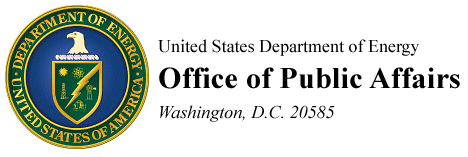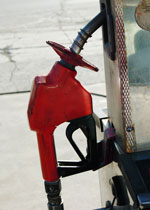
Craig Stevens, (202) 586-4940
April 20, 2006
 WASHINGTON, DC – Secretary of Energy Samuel W. Bodman today is reminding consumers about the Department of Energy’s (DOE) gasoline price reporting system. Consumers can report activity at local gasoline filling stations that they believe may constitute “gouging” or “price fixing” by visiting http://gaswatch.energy.gov/.
WASHINGTON, DC – Secretary of Energy Samuel W. Bodman today is reminding consumers about the Department of Energy’s (DOE) gasoline price reporting system. Consumers can report activity at local gasoline filling stations that they believe may constitute “gouging” or “price fixing” by visiting http://gaswatch.energy.gov/.
“There are many legitimate factors influencing the price consumers are paying at the pump, including growing demand, the high price of crude oil, the lingering effects of last summer’s hurricanes on our refining sector and the regular transition of fuel blends as we head into the summer,” said Secretary Bodman. “And while the majority of local merchants are fair and honest people, there may be some people looking to take advantage of consumers in this high price environment. By reporting suspicious activity, consumers can help us send a message that illegal activity won’t be tolerated and bad actors will be held accountable.”
Price gouging, price fixing, and other forms of collusion by suppliers or retailers may violate federal or state law, and may be subject to prosecution by federal or state enforcement authorities. Last year, nearly 35,000 people reported gasoline prices to the Department of Energy’s web site and hotline. All complaints registered with DOE are collated and transmitted to the Federal Trade Commission, the U.S. Department of Justice, and individual State Attorneys General for investigation and prosecution where appropriate.
In addition to reporting suspicious behavior, consumers can take a number of steps to save money by increasing the mileage they get from a gallon of gas. Some of these steps include:
- Slow down. Each 5 miles per hour an individual drives over 60 is like paying an additional $0.15 per gallon for gasoline. Aggressive driving including speeding, rapid acceleration and braking is not only unsafe but also wastes fuel.
- Keep your car properly maintained and running smoothly. Tune-ups, clean air filters, properly maintained tires, and using the appropriate grade of oil for your vehicle can help you save money at the pump.
- Use your engine wisely. Avoid excessive idling and use cruise control and overdrive gears for better fuel mileage.
- Be smart about driving. Group errands together to reduce unnecessary trips, join a carpool, or use mass transit if available. In some places, telecommuting may be a possibility.
- Keep your car light. Too often cars become long-term storage facilities for sporting equipment or household items.
Consumers who do not have access to the Internet can report suspicious activity by calling 1-800-244-3301.